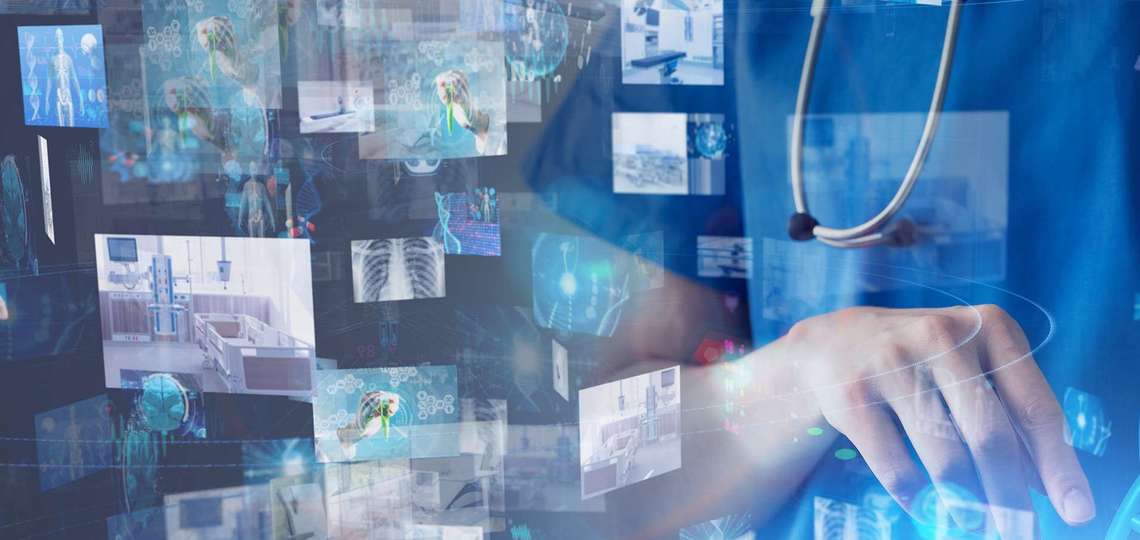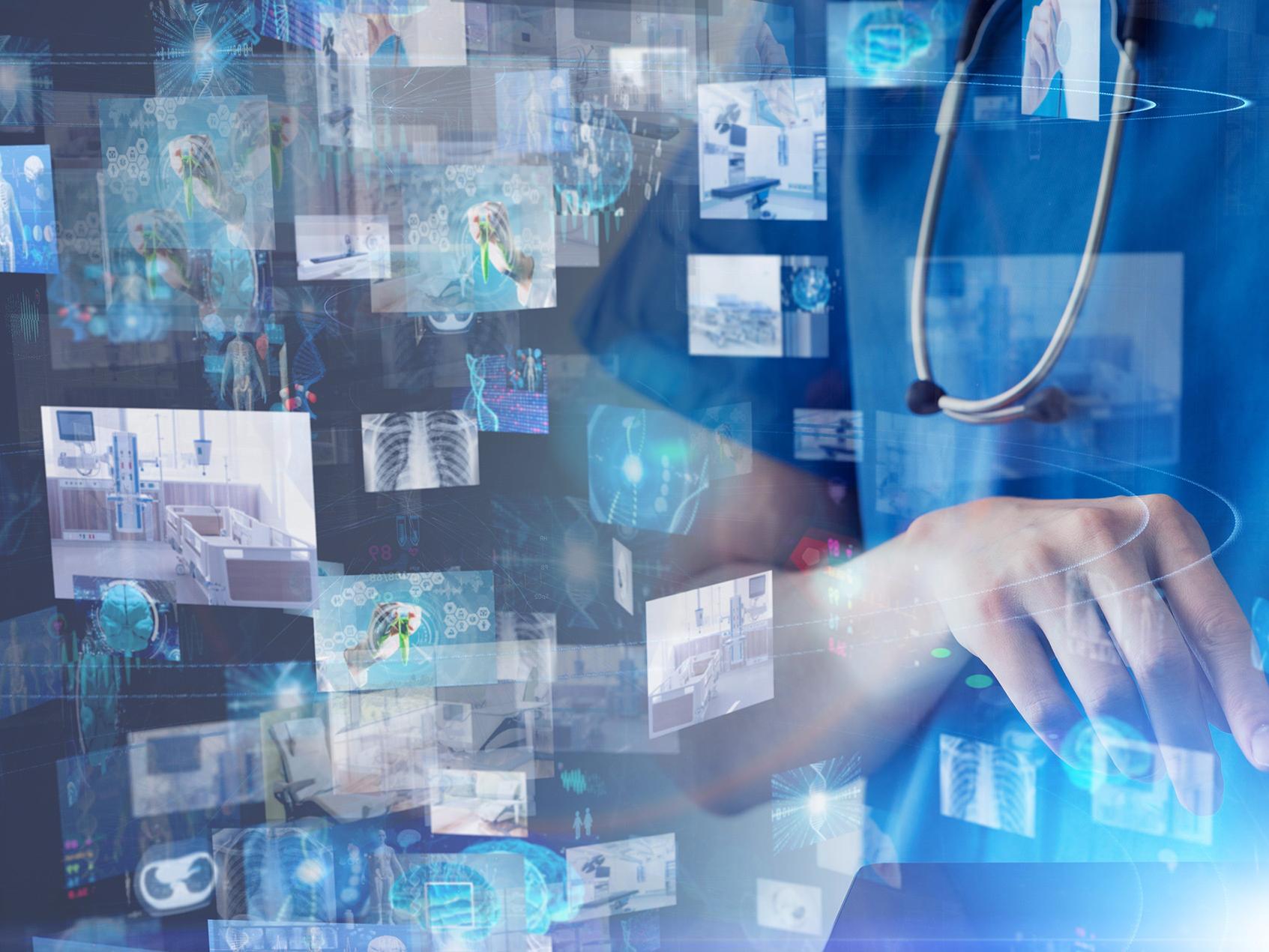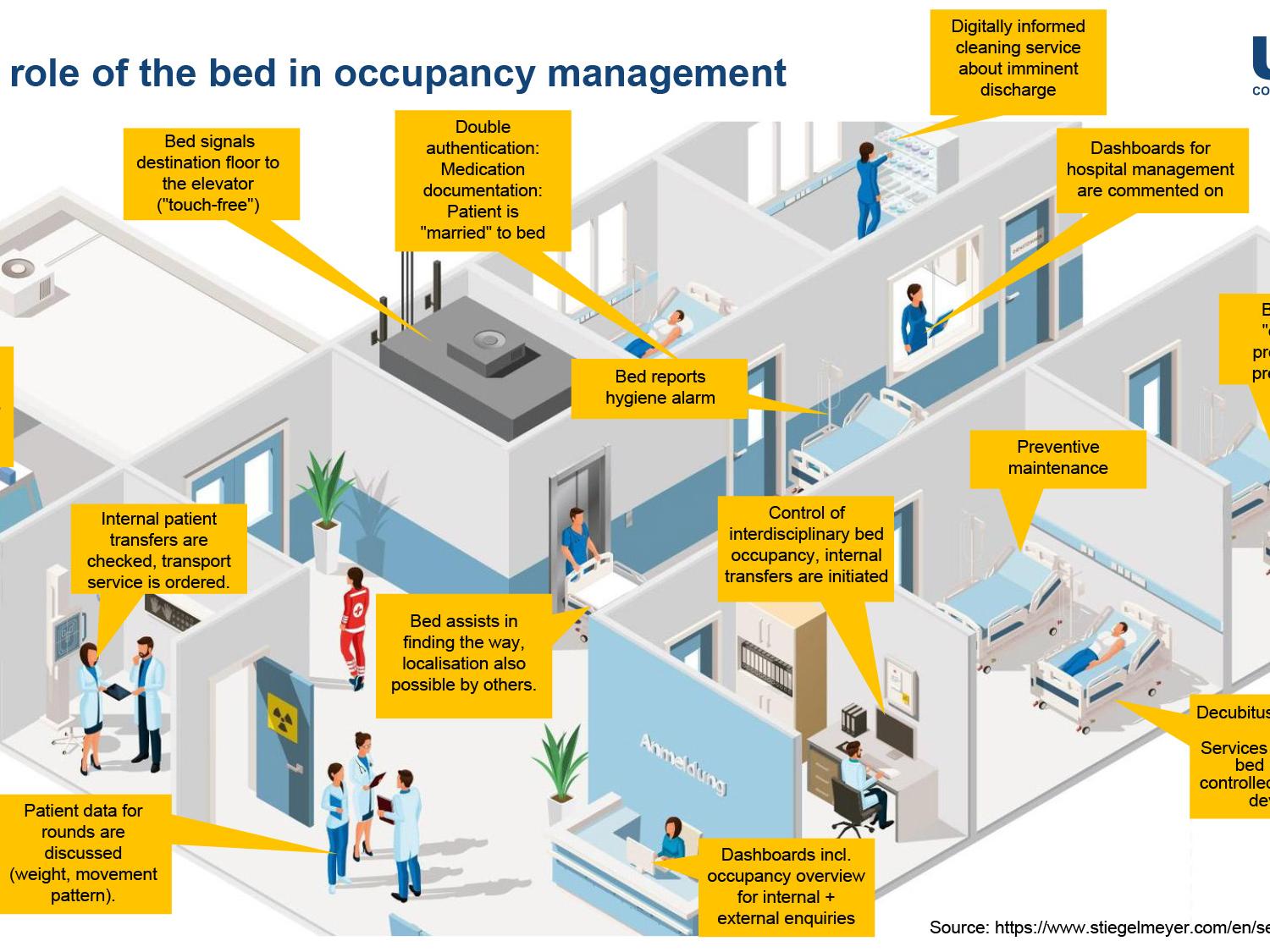
When the bed talks to the elevator
Meik Eusterholz on the great possibilities of digitisation in the health sector
Anyone who is currently browsing through a specialist healthcare magazine will immediately be struck by a great lament: digitisation, e. g. in German hospitals and nursing homes, lags miles behind the technical possibilities, important key issues of the future are being neglected. At the same time, the manufacturers of medical devices see the great potential of the new technology, but in many areas, they realise that the market for digital products is still in its infancy. With the new "Connectivity Lab" in Herford, Stiegelmeyer has created an ideal environment for the development of interconnected beds. We spoke with Meik Eusterholz about the chances of success of this project. He works as business unit manager for the healthcare industry at UNITY, a renowned management consultancy for digitalisation.
Mr Eusterholz sees an important role for digital beds in the patient room of the future. "Both in industry and in the private sector, things communicate with each other, that is the future," he explains. "Hospital beds will also communicate with the digital systems around them. UNITY, for example, has planned the IT and communications infrastructure for a Luxembourg hospital. We have developed concepts for how the bed in the room can recognise that its castor will be defective in four weeks. The bed independently requests a new castor from the supplier and, in a different service, a technician. Beforehand, it checked the hospital information system calendar to see when it is not occupied, in order to determine the optimum date for maintenance. In the end, the bed is repaired without nursing staff having to deal with it".
Essential technology
This is not a vision of the future, but logistics technology that is already taken for granted in many industrial sectors. Even if you drive a modern car, you know what wheels and tail lights can report. However, the development of such artificial intelligence naturally also means that many previously simple mechanical components of a product must now be equipped with sensors, which increases the complexity and price of the product. Are hospitals and nursing homes prepared to make such an investment?
„"I think hospitals can no longer afford to do without these technologies," says Meik Eusterholz. "Those hospitals among the approximately 1,900 German clinics that continue to operate only analogue will not survive – if only because they no longer meet the quality standards. With the help of modern technology, their work and the course of treatment can be better organised". Then there is the Krankenhauszukunftsgesetz (Hospital Future Act), which provides hospitals in Germany with 4.3 billion euros in funding for digital projects: "We can already see the great interest among hospitals in the many enquiries," says Mr Eusterholz.
Where does the state funding go?
In which areas will the billions from the government be directed? "Many emergency rooms will be modernised," the expert explains. "The topic of medication management is also important, because far too many mistakes are still happening here. Digital documentation, reduction of bureaucracy and decision-making support will also help the hospitals.
In rural areas in particular, many clinics have to set up an IT infrastructure first of all, for example by providing WLAN access to all rooms. The Corona pandemic has also revealed that many hospitals are not technically able to send their administrative staff to work from home. Another aspect of particular interest during the Corona pandemic is bed management across hospitals: "This would enable the authorities to see where beds in intensive care units are available or occupied, and when they will become available again.
Digital bed management can also provide great relief within the hospital. "The ambulance could already reserve a bed for occupancy management during the journey, indicating the average length of stay of patients with the respective clinical picture. This would help the staff to plan the transfer of the patient to another ward in time. It is a huge issue at the moment that patients are lying in the emergency room for far too long because there is no bed available for them due to organisational problems".

Higher occupancy, shorter length of stay
Modern bed management is also indispensable because the planned reduction in the number of hospital beds will increase the occupancy rate in the clinics and the shorter lengths of stay will lead to a faster turnover of patients in the beds. "The complexity per bed will increase," says Mr Eusterholz.
If, on the other hand, the digital hospital system knew exactly which patient was in which bed, mistakes in medication could even be avoided in the future. "When doctors or nurses approach the bed with medication, tracking automatically ensures the authentication of staff and patient and the identification of the medication. This reduces the error-proneness of the process, as testing and documentation processes are carried out in the background. Pharmaceutical manufacturers and pharmacies are already ensuring that certain medicines can be located. Chemical processes are used for this purpose: "There are, for example, psychotropic drugs that are equipped with a sensor. If the sensor comes into contact with stomach acid after ingestion, it sends out an electrical impulse.”
Hygiene is a top priority in the hospital, since Corona more than ever. Meik Eusterholz also sees advantages for digital beds here: "Especially when beds wait a long time in the corridor because the cleaning service hasn't picked them up yet or because the room is currently occupied, a hygiene problem can arise. Then, the bed could report it: Attention, I am no longer clean now. Or: Stay away from me, my last patient was infectious." If the bed is in the cleaning process, it could then report: "I will be available again in twelve minutes." At the moment, all this information is often given over the phone and takes a lot of time.
Reduce contact
If a patient's treatment plan is stored completely digitally, the bed can even tell the elevator to which floor it should go. "The advantage is that the elevator button no longer needs to be touched," explains Mr. Eusterholz. "It is tragic that at some highway rest stops you have to touch less than in a hospital. When I have to choose a clinic as a patient, I pay close attention to such things."
Working with digital devices and systems is by no means a matter of course for everyone. In the healthcare sector, employees of different ages, educational levels and language skills come together. "This is not a problem if I give people time to get to know the new technology and provide them with further training. But especially the training modules that are part of a new product are often cancelled due to cost reasons or lack of time. That is the wrong approach. Healthcare personnel sometimes resemble forest workers who have to cut down trees with blunt saws all the time and do not have time to sharpen the saw blade. At some point I have to start solving the problems and eventually gain more time with new systems".
Solving problems with digital ideas – that is also the goal of Stiegelmeyer's Connectivity Lab in Herford. We are looking forward to getting to work there and are curious to see what feedback customers and visitors will give us. We will be working diligently to ensure that the lamentation over the sluggish digitalisation in the German healthcare system soon comes to an end.



